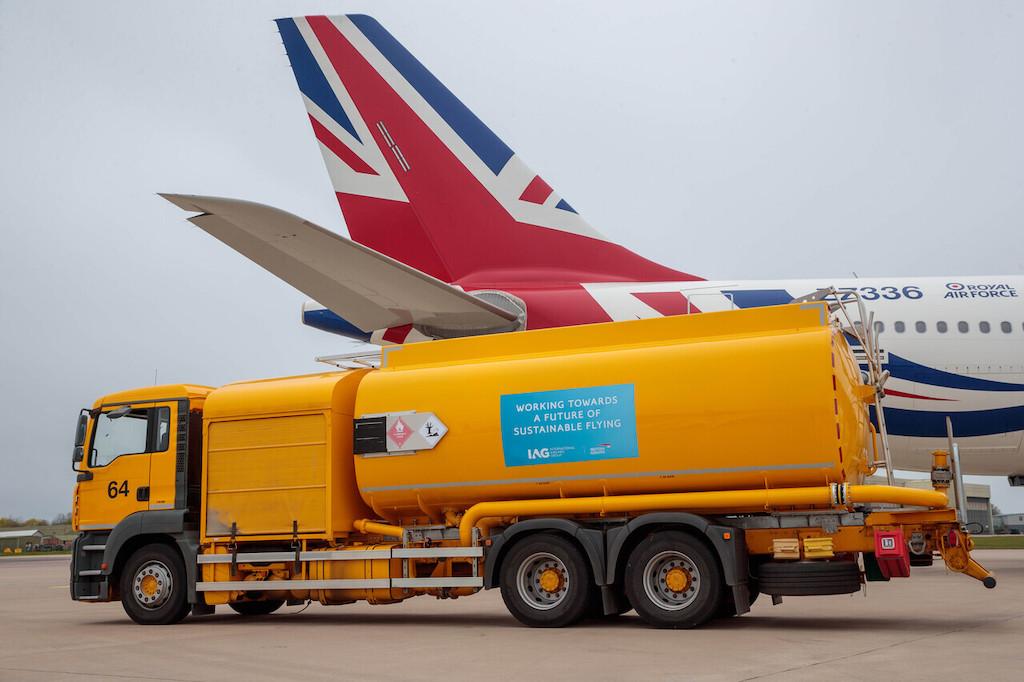
A British Airways bowser delivering SAF.
British Airways (BA) CEO Sean Doyle has called for accelerated production of sustainable aviation fuel (SAF) to meet the UK's upcoming mandates, emphasizing the urgent need for policy support and investment in infrastructure.
“The good news is I think the new government here in the UK is beginning to get the gravity of the challenge we face,” Doyle said at the Farnborough Airshow this week, days after Labour party leader Keir Starmer took over as the UK’s new prime minister.
“We are a hard to abate segment, but we want to get to net zero by 2050…. However, what we need right now, particularly for long-haul and medium-haul travel, is SAF,” he said.
Doyle said that International Airlines Group (IAG), the parent of BA, has been proactive in procuring SAF, highlighting a purchase agreement in February for nearly 1 billion liters of SAF with California-based Twelve. The power-to-liquid e-SAF is made from CO2, water and renewable electricity.
A partnership is also in place with SAF provider LanzaJet, which is developing a facility in Georgia in the US, and is in the early stages of planning and design for a potential commercial facility in the UK. However, Doyle stressed that the UK requires supportive policy to encourage technology investors to build SAF production plants in the country.
His comments came after the new UK government confirmed on July 22 that it intends to move forward with a SAF mandate, starting at 2% in 2025, and ramping up to 22% by 2040. It is hoped that the mandate, subject to parliamentary approval, will drive demand in the UK, deliver emission reductions and provide “investor confidence that the UK will be a place to produce, use and supply SAF.”
Additionally, the UK has announced plans to introduce a revenue certainty mechanism for SAF producers that are looking to invest in new plants in the UK.
Asked whether BA will pass on the cost of the mandate to passengers from next January, Doyle said, “The cost of complying with the mandates is going to be directly correlated to the speed at which we can enable SAF production. We need to get moving.”
He added, “I wouldn’t speculate yet on the impact on cost, but the more SAF we can get to meet the mandates … the more affordable this transition will be for consumers. The bottleneck is production.”





